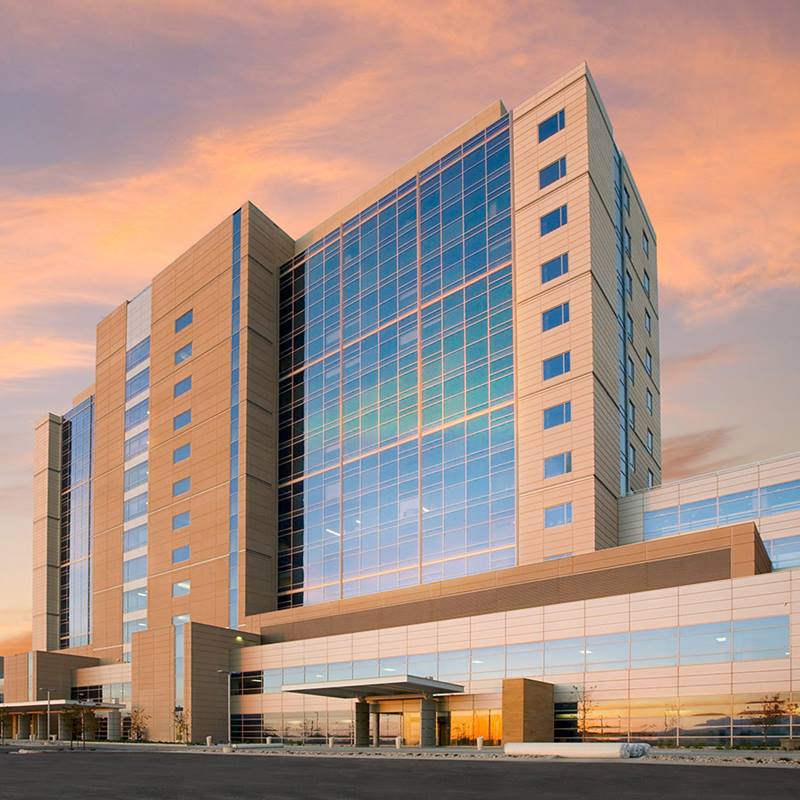Use Intermountain Connect Care®
Learn More.
How can we help?

Intermountain Medical Center in Murray has been certified by the Joint Commission as a Comprehensive Stroke Center, which means the hospital has demonstrated an exemplary ability to use evidence-based clinical processes to improve care and outcomes for stroke patients. Out of nearly 5,700 hospitals in the United States, only 96 of them — or 1.7% — are accredited by the Joint Commission as Comprehensive Stroke Centers.
The Joint Commission accredits and certifies nearly 21,000 health care organizations and programs in the United States. Joint Commission accreditation and certification is recognized nationwide as a symbol of quality that reflects an organization’s commitment to meeting certain performance standards.
“I’m really proud of all of our teams coming together to help us earn this advanced designation,” says Robert Hoesch, MD, a neurologist and medical director of the Intermountain Medical Center Neurosciences Institute. “We work very hard to continually improve the care we offer to our patients, and this accreditation shows the care our team provides to our patients is among the best care available in America.”
Intermountain Medical Center is the only hospital in Utah and the Intermountain West , including Idaho, Nevada, Montana, Wyoming, Arizona or New Mexico, to earn the designation from the Joint Commission. University of Utah Hospital is accredited by a different organization, DNV GL–Healthcare.
Last year Intermountain Medical Center treated 901 stroke patients, more than any other hospital in the state of Utah.
Intermountain Medical Center's "door-to-needle time" for stroke patients — or the amount of time it takes to give eligible stroke patients an intravenous dose of the complex protein tPA to break down potentially harmful blood clots in the brain — is 37 percent better than the recommended national target. Intermountain Medical Center’s median door-to-needle time is 38 minutes, and the goal of a national quality improvement initiative sponsored by the American Heart Association/American Stroke Association is 60 minutes.
“To put our door-to-needle time in perspective, delivering tPA in 38 minutes instead of 60 saves a patient almost 42 million brain cells,” says Dr. Hoesch. “Timing is everything when you’re having a stroke, and Intermountain Medical Center’s excellent work means patients have better outcomes, shorter recoveries, and can return more quickly to their day-to-day lives.”
"This achievement is a direct reflection of the dedication, skill, and teamwork of all of the members of our stroke team to consistently provide the best quality of care to our patients and the best possible outcomes" says Mark Ott, chief medical officer for Intermountain Medical Center. "The team’s work is incredible. The accreditation also reflects Intermountain Medical Center’s growing stature as one of the best, most clinically advanced hospitals in America."
Stroke is the fifth-leading cause of death in the United States and a leading cause of serious, long-term disability, according to the American Heart Association/American Stroke Association. On average, someone suffers a stroke in America every 40 seconds, someone dies of a stroke every four minutes, and 795,000 people suffer a new or recurrent stroke each year.